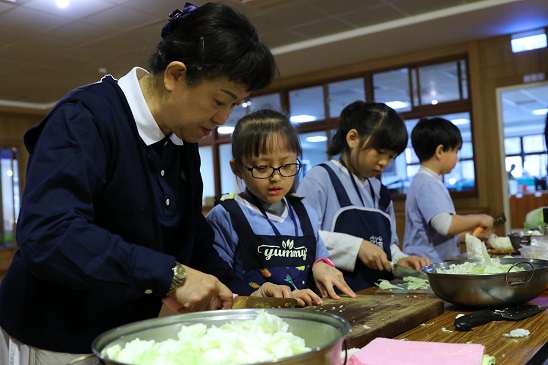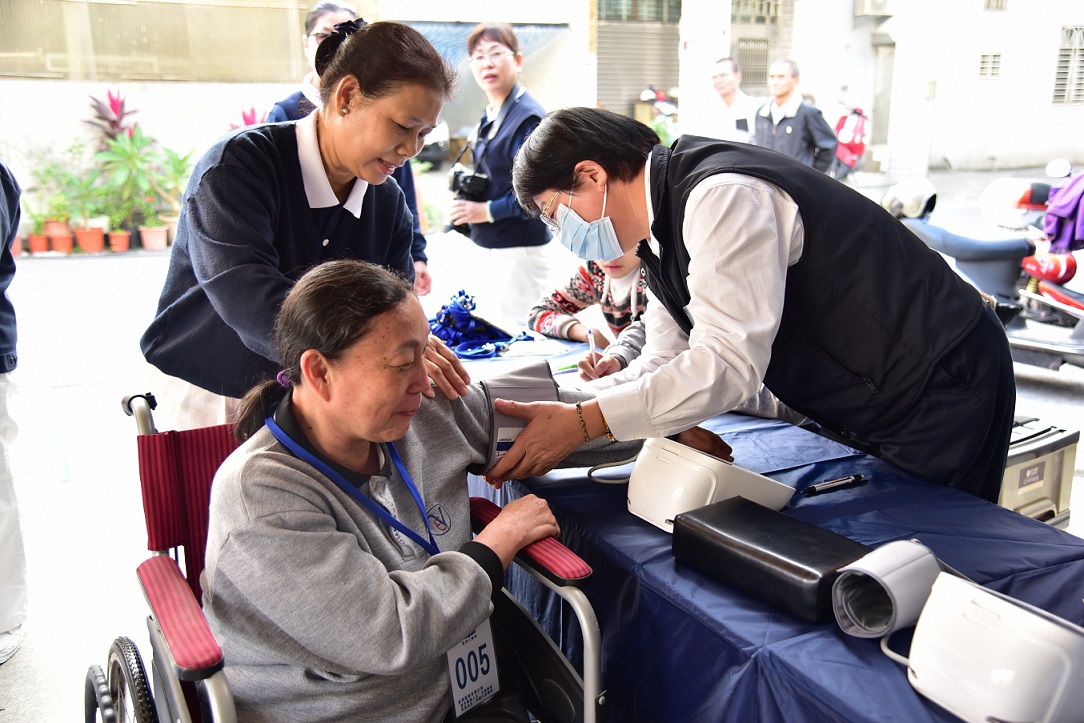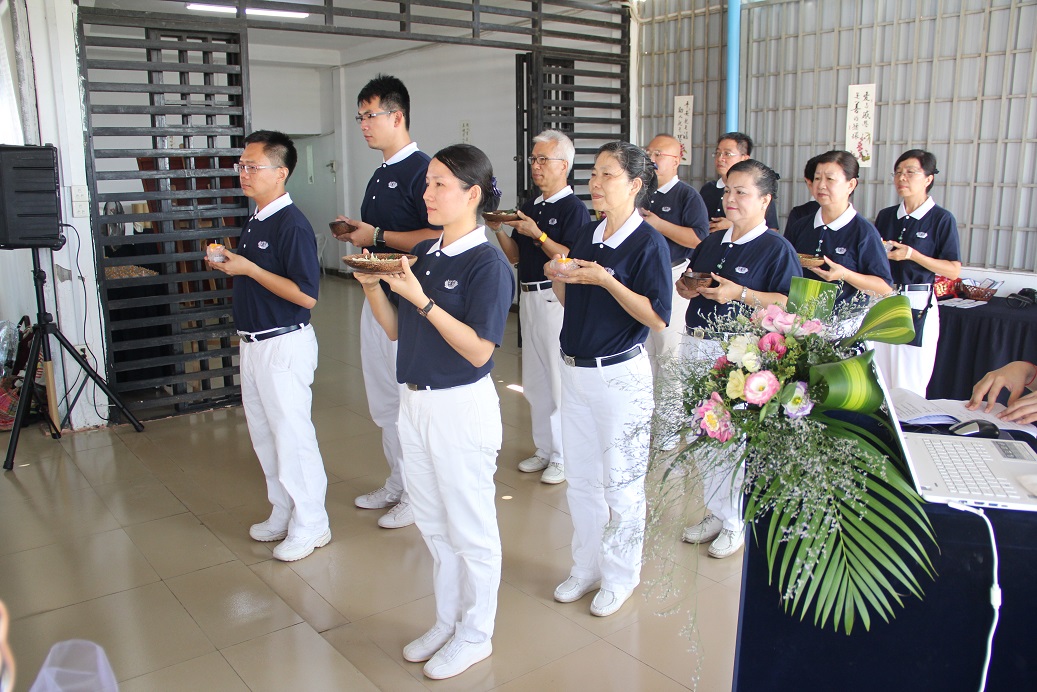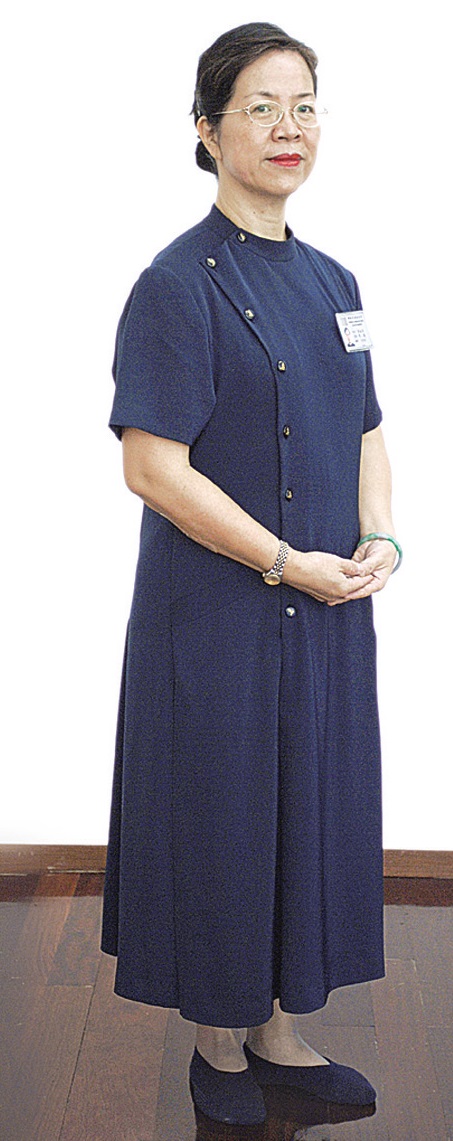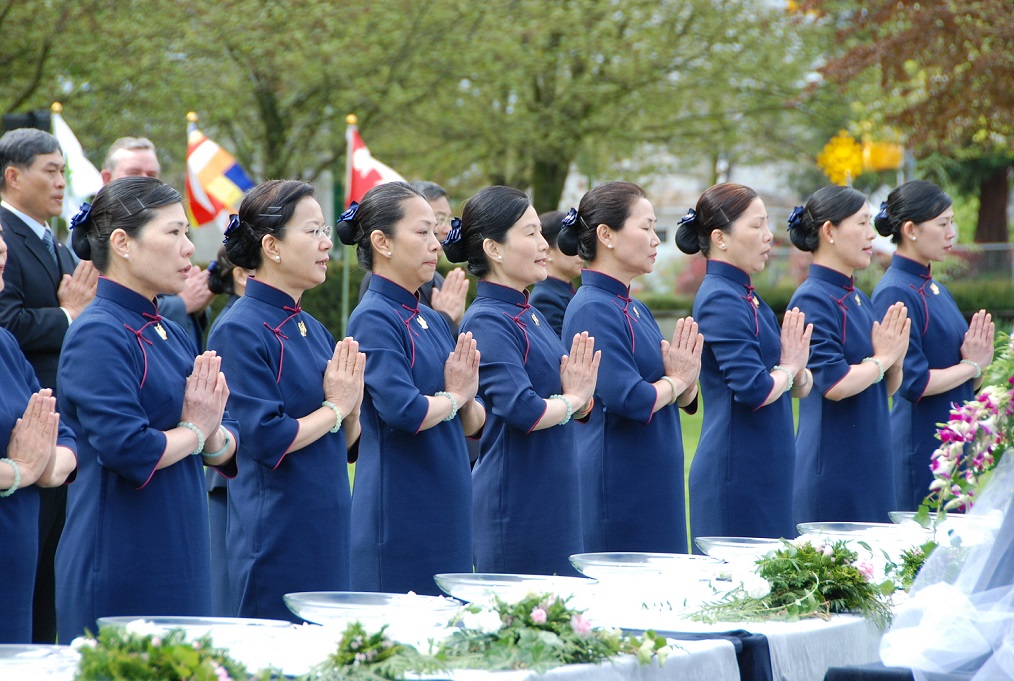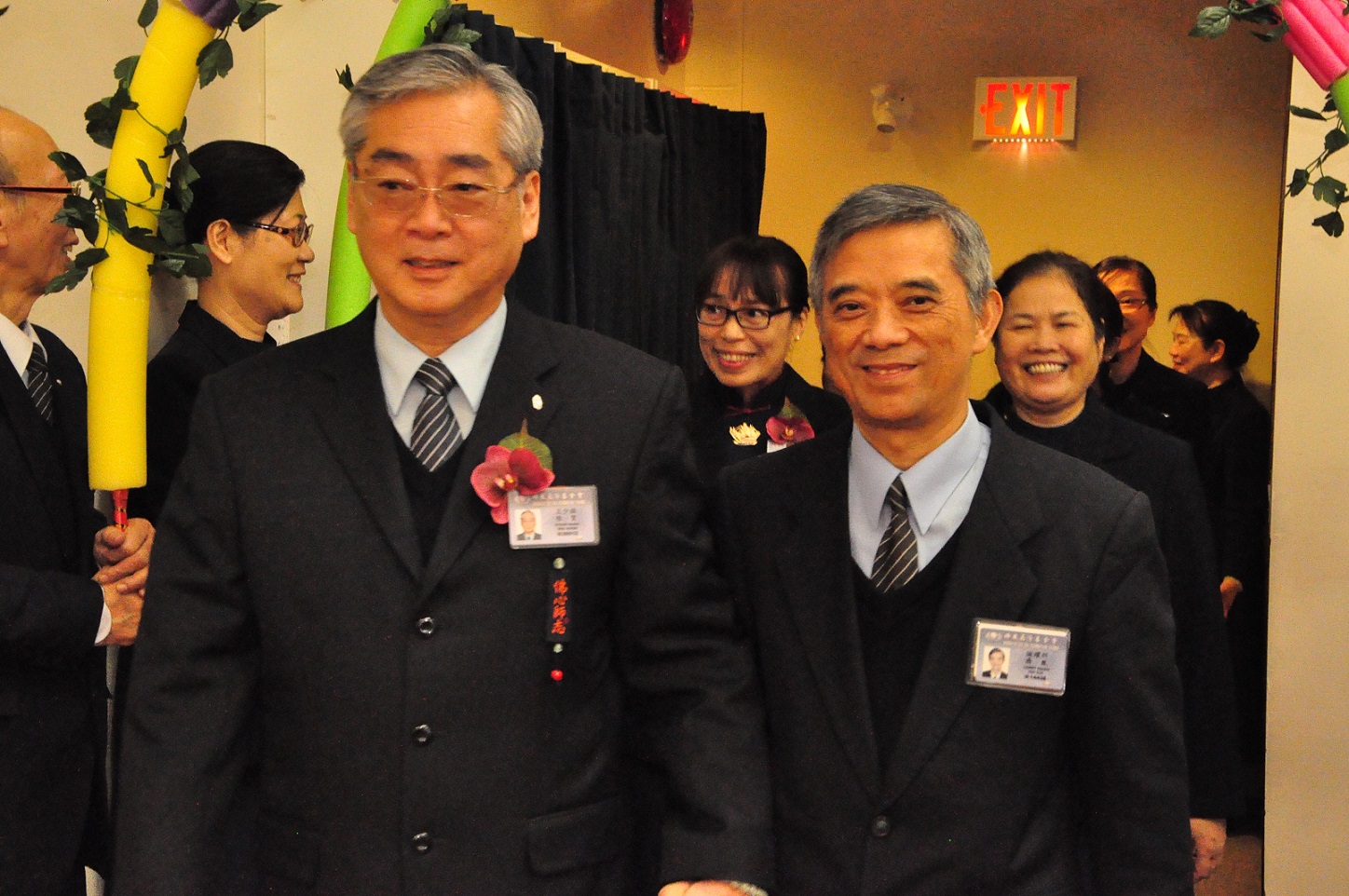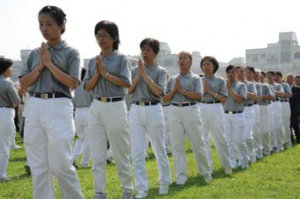Tzu Chi Q&A
A Glimpse into the Missions and Spirit of Tzu Chi
Bodhisattvas are not the wooden or clay statues
in temples that we worship,
but people who reach out to others
in their time of need.
1. How are Tzu Chi volunteers organized?
Tzu Chi volunteers are organized by their areas of residence so when disasters strike, the volunteers living nearby are able to quickly team up to provide aid to those affected. It is also easier for the volunteers to hold activities to bond people in the same community together and offer them a chance to contribute to their communities. In fact, it is through these Tzu Chi events at the community level that many people have been inspired to volunteer with Tzu Chi.
2. What activities do Tzu Chi volunteers usually organize for people in their communities?
| Throughout the year, Tzu Chi volunteers hold various activities in the community, such as book clubs, inspirational talks, parent-child activities, neighborhood cleanups, recycling programs, bone marrow drives, vegetarian food promotion, health checkups for the elderly, and so on. These activities help to promote family values and wholesome principles as well as foster a greater sense of community. |
In a Tzu Chi parent-child class in New Taipei City, Taiwan, children learn to make pickled cabbage from a Tzu Chi volunteer. (Li Ling-gong) |
Tzu Chi volunteers in Kaohsiung, Taiwan hold an early dementia screening for the elderly in their community. (Li Feng-yue) (Tzu Chi Foundation) |
3. Why do Tzu Chi volunteers wear different uniforms?
Tzu Chi volunteers wear different uniforms for different occasions and events. The uniforms also indicate whether a volunteer is certified or not:
|
(1) Blue-and-white uniform: for certified volunteers when taking part in events that involve physical activities, such as carrying out relief work, helping at aid distribution events, promoting recycling on the streets, serving as culinary volunteers, cleaning up beaches or mountains, and so on.
|
(2) Blue dress: for certified female volunteers when serving as hospital volunteers, visiting Tzu Chi’s care recipients, or attending meetings, training classes, book clubs, and so on.
|
(3) Mandarin gown: for certified female volunteers when attending important occasions or formal gatherings.
|
|
(4) Suit with a Tzu Chi necktie: for certified male volunteers when taking part in events listed in (2) and (3).
|
(5) Grey-and-white uniform: for trainee volunteers or the general public who help out at a Tzu Chi event.
|
4. How are Tzu Chi volunteers trained?
For those who wish to become certified Tzu Chi volunteers, they'll need to receive at least two years of training.
During the first year, a trainee volunteer is required to attend training courses, help recruit donating members, and take part in Tzu Chi's events, such as caring for the poor, serving as a volunteer at Tzu Chi hospitals, helping with Tzu Chi's recycling work, and so on.
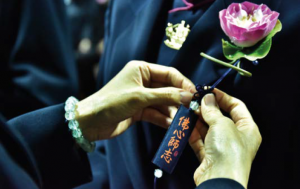
All newly certified Tzu Chi volunteers wear a ribbon with the words "With Buddha's heart and Master's convictions." (Chen Cong-lin)
After the first year of training, those who identify with Tzu Chi's values and are willing to commit to Tzu Chi's work can then enter into the second year of training where they'll attend more intensive classes and take part in regular volunteer work in order to get a deeper sense of Tzu Chi's missions.
After completing two years of training and passing the evaluation by senior Tzu Chi volunteers, the trainee volunteers can then be certified by Master Cheng Yen.
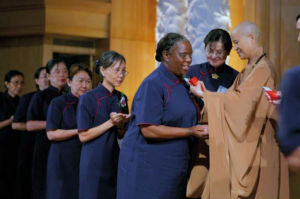
Master Cheng Yen pins a Tzu Chi badge to Gladys Ngema from Durban, South Africa, certifying her as Tzu Chi's first Zulu volunteer in Africa. (Tzu Chi Foundation)
5. How many certified volunteers does Tzu Chi have? And are they all Taiwanese?
Tzu Chi volunteers come from different countries, cultures, races, and religious faiths. As of 2019, Tzu Chi had 89,951 certified volunteers in 44 countries and regions around the world.
6. As Tzu Chi volunteers, are there any rules they have to abide by?
All trainee and certified Tzu Chi volunteers are required to uphold Tzu Chi's Ten Precepts:
(1) Do not kill.
(2) Do not steal.
(3) Do not fornicate.
(4) Do not lie.
(5) Do not drink alcohol.
(6) Do not smoke, use drugs, or chew betel nuts.
(7) Do not gamble or speculate.
(8) Be filial to parents and gentle in demeanor.
(9) Follow traffic rules.
(10) Do not partake in political activities or demonstrations.
7. Does Tzu Chi pay for its volunteers' trips when they go on relief missions?
No. Tzu Chi volunteers have to pay for their own travel expenses and other personal cost incurred during their relief missions.
8. What requirements do I need to meet in order to become a Tzu Chi volunteer?
A heart to give and a mind to serve.
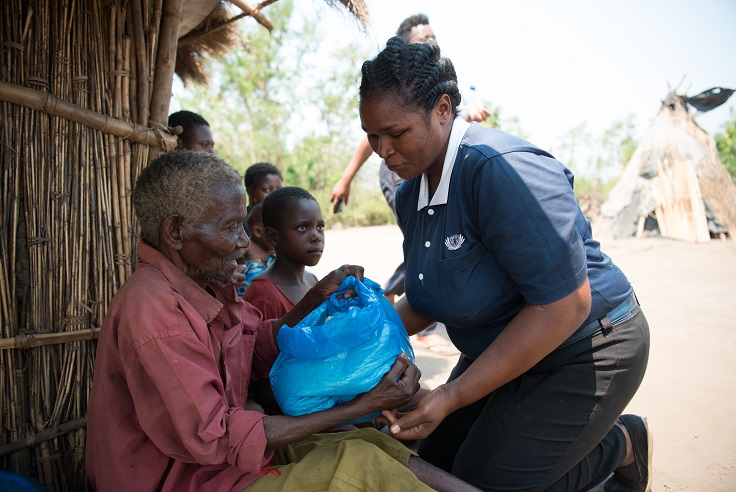
Maria Mavumdlha, a Tzu Chi volunteer in Mozambique, learns how to provide care to the needy during her visit to Cyclone Idai survivors in her community. (Cai Kai-fan)
Contact Us | Plan a Visit | Donate
8 Lide Road, Beitou 11259, Taipei, Taiwan
886-2-2898-9999
005741@daaitv.com
©Tzu Chi Culture and Communication Foundation
All rights reserved.

